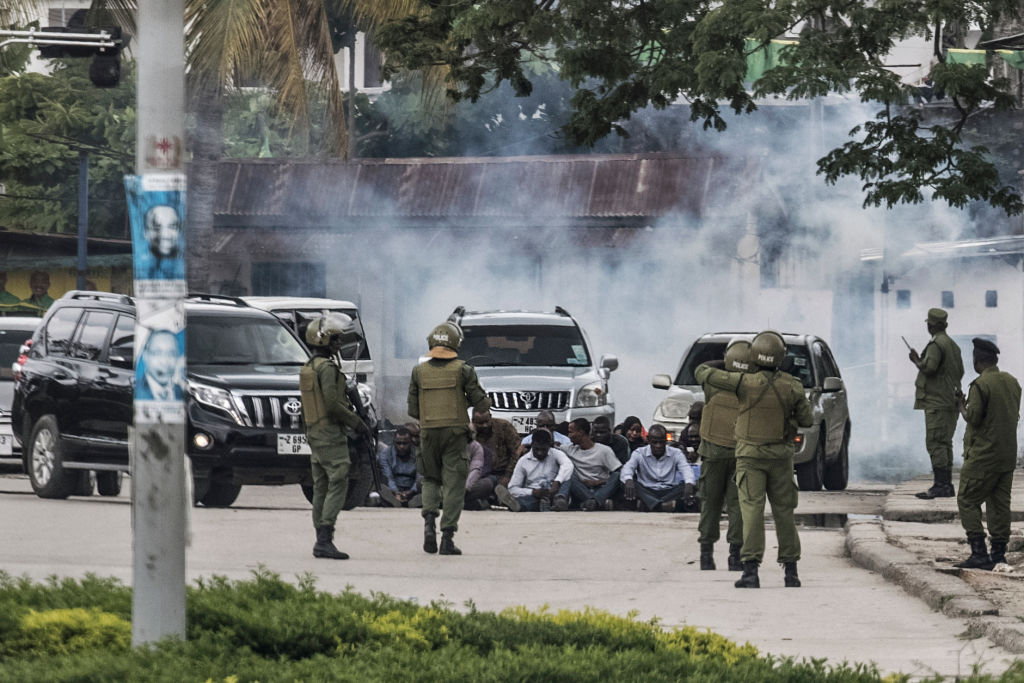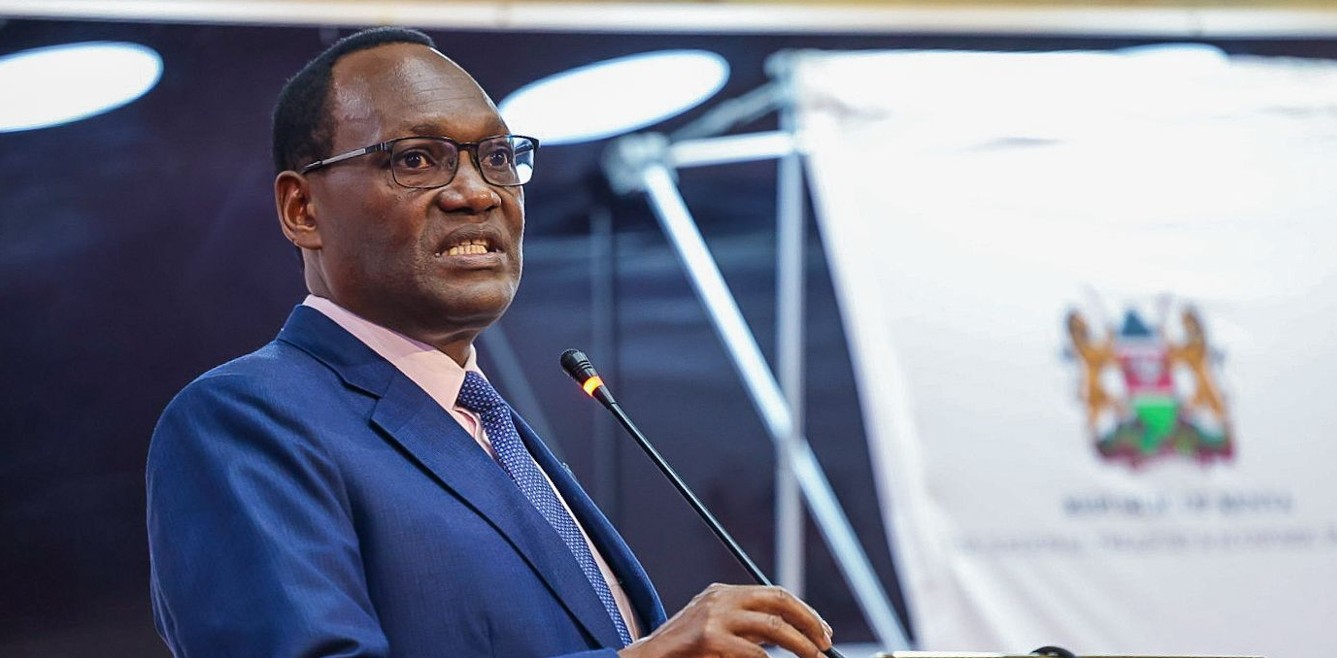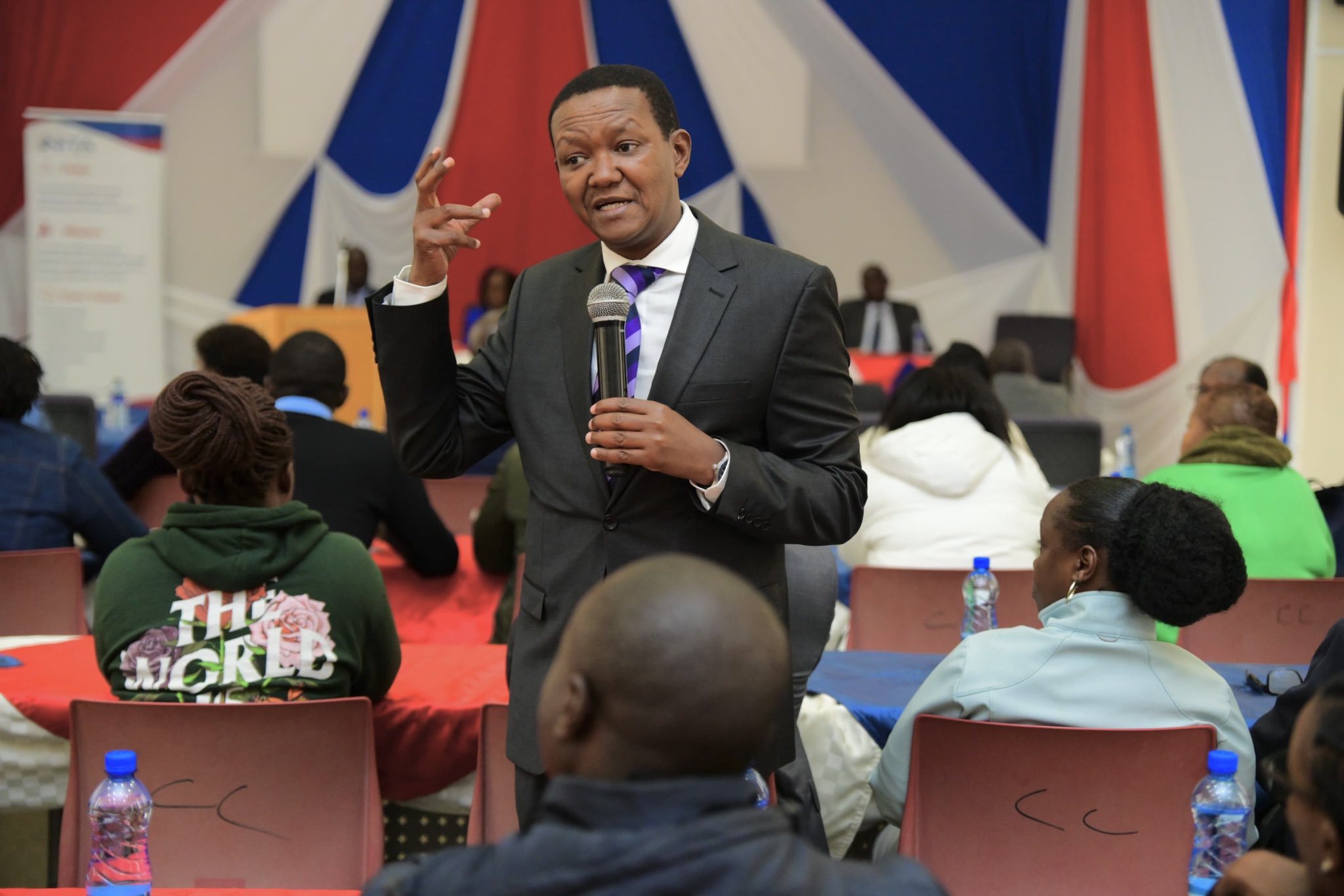Ruto calls for regional integration, proposes single EAC political confederation
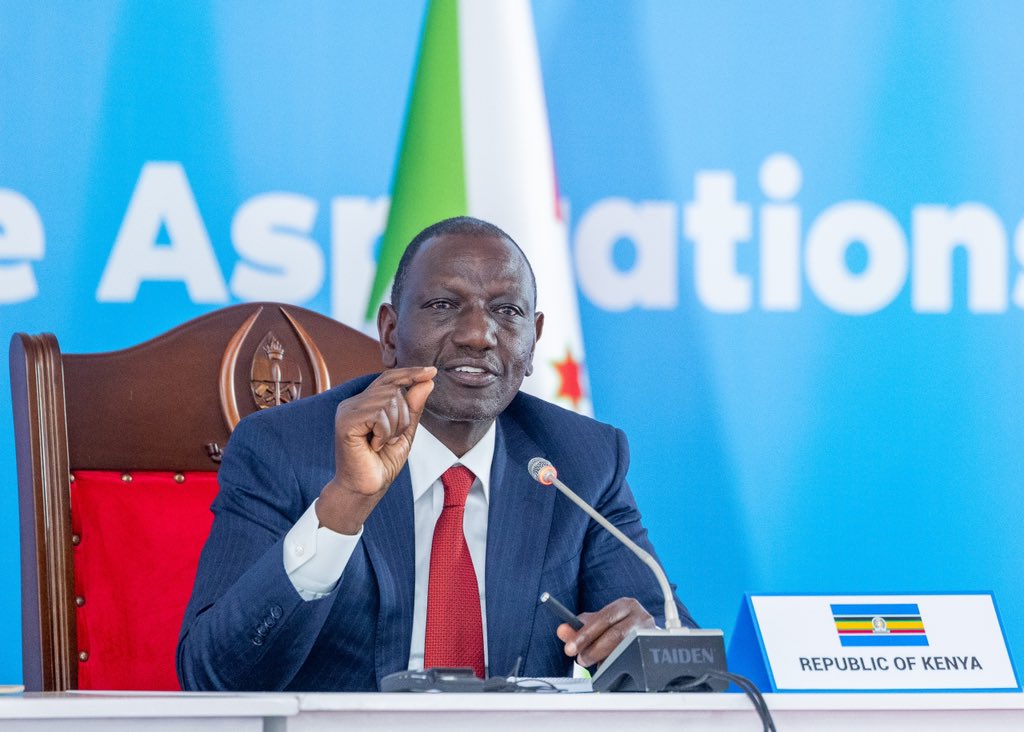
Ruto urged regional leaders to honour the ambitions of the founding fathers of East Africa's post-independence vision by consolidating the East African countries into one united entity.
President William Ruto has called for the unification of the East African region into one single confederation, reigniting a decades-old vision for regional integration.
Speaking at the 24th Ordinary Summit of East African Heads of State in Arusha, Tanzania on Friday, Ruto urged regional leaders to honour the ambitions of the founding fathers of East Africa's post-independence vision by consolidating the East African countries into one united entity.
More To Read
- Kenya dismisses war fears as Mudavadi quashes claims of Uganda ‘overrunning’ the country
- Somalia takes over leadership of EAC Speakers Bureau from Kenya
- Kenya’s exports to EAC partners grow as diaspora sends Sh1 trillion home
- EAC trade revenues hit Sh4.9 trillion as regional commerce accelerates
- EAC’s future at stake as AU flags uneven progress, weak governance
- EAC confirms investment-ready Kenya–Uganda Expressway, enhancing Mombasa port access
His comments come at a time when East Africa's political and economic landscape faces both challenges and opportunities.
While no immediate steps are set to be taken, the proposal has sparked a conversation about the future of the East African Community (EAC), a regional organisation that includes Kenya, Uganda, Tanzania, Rwanda, Burundi, and South Sudan, with the Democratic Republic of Congo (DRC) recently joining.
"When the founding fathers, Jomo Kenyatta, Julius Nyerere, and Milton Obote, came up with the East African Federation then, it did not go as far as they had envisioned," Ruto said.
"We must commend Tanganyika and Zanzibar, who took the bold step and created the United Republic of Tanzania," he added.
The president went on to question why the original vision of the East African Federation had stalled, despite initial steps taken by Tanzania in 1964 to unite Tanganyika and Zanzibar.
"Why did the union, which began in 1964 and birthed the Zanzibar-Tanganyika unification, go on to stagnate? It should have continued to Kenya and Uganda so that it achieves the goal of the forefathers," Ruto stated.
For decades, East Africa's founding leaders dreamed of a unified region that would be politically, economically, and culturally cohesive.
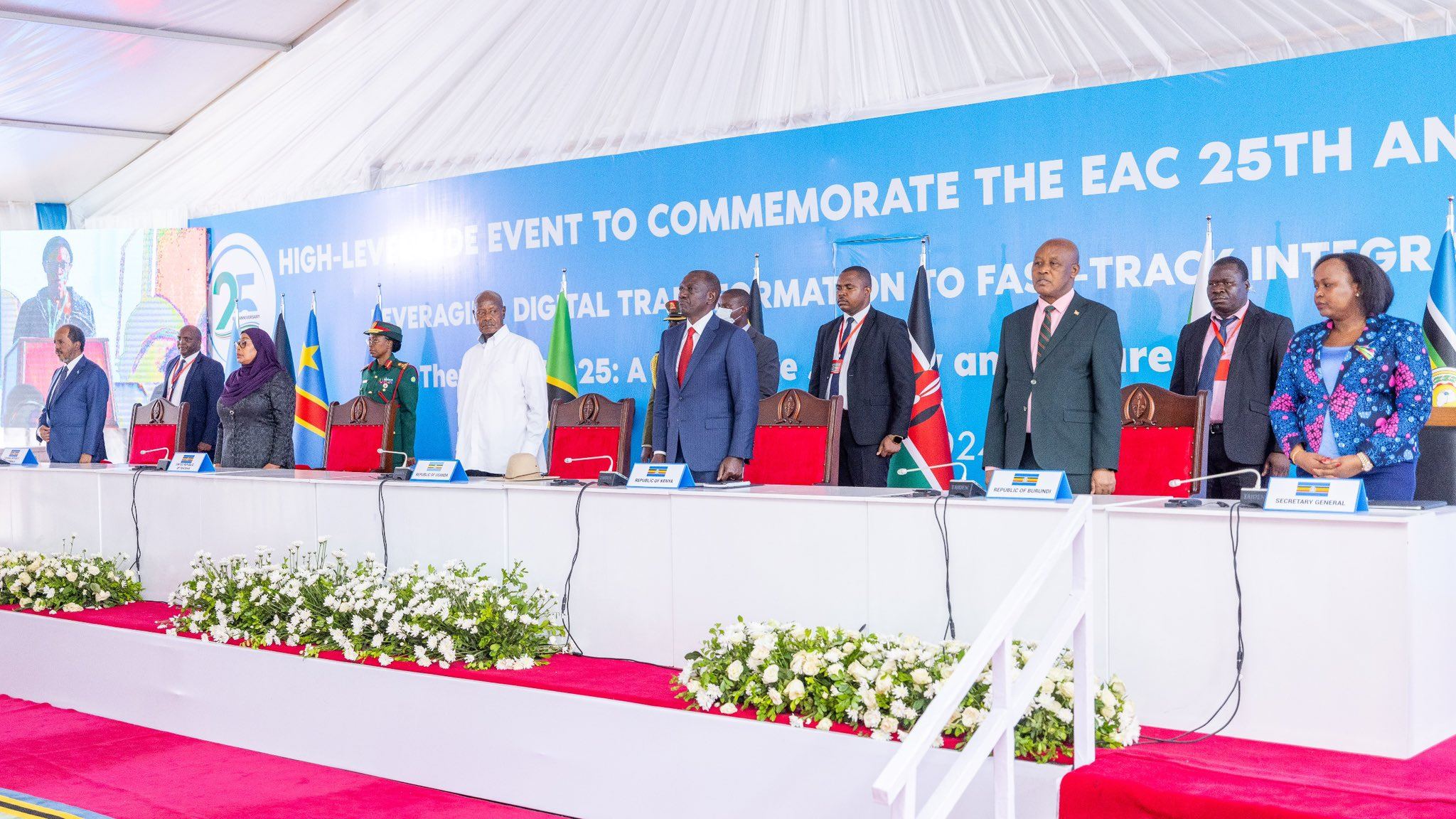 Leaders present at the 24th Ordinary Summit of the EAC Heads of State High-Level Side Event in Arusha, Tanzania on November 25, 2024. (Photo: PCS)
Leaders present at the 24th Ordinary Summit of the EAC Heads of State High-Level Side Event in Arusha, Tanzania on November 25, 2024. (Photo: PCS)
President Ruto's call for a revival of this vision could have far-reaching implications for countries like the Democratic Republic of Congo and Somalia, which have not been historically part of the East African Federation.
Benefits
The proposal, if implemented, could offer significant benefits, including a stronger regional economy, increased bargaining power on the global stage, and enhanced security cooperation.
However, it also raises several complex challenges. Among the concerns are the potential lack of clarity regarding leadership, the integration of diverse political systems, and the risk of regional discord and instability.
"There are many policy and legal hurdles," Ruto acknowledged, recognising the potential difficulties of merging several distinct countries with their own governments, languages, and identities.
He stated, however, that the benefits of such unity could outweigh these challenges in the long term.
President Ruto also highlighted Tanzania's crucial role in driving the proposal forward. Referring to the example of Tanzania's unification of Tanganyika and Zanzibar, he called on Tanzanian President Samia Suluhu to lead the effort to fulfil the vision of a united East Africa.
"Tanzania has a debt to the people of East Africa. The unity that was figured out by our founding leaders, which started with only Zanzibar and Tanganyika, must not stop there. You have an explanation to us why it should not move on and become what it was intended to be," he said.
As Ruto put it, the consolidation of East Africa into a single entity is not just an idea, but a "journey" that the region must continue.
"Therefore, as East Africans, we demand that we complete this journey of consolidating this East Africa into what our forefathers thought about," he concluded.
The EAC summit focused on addressing pressing issues such as economic integration, climate resilience, and regional security.
Top Stories Today

